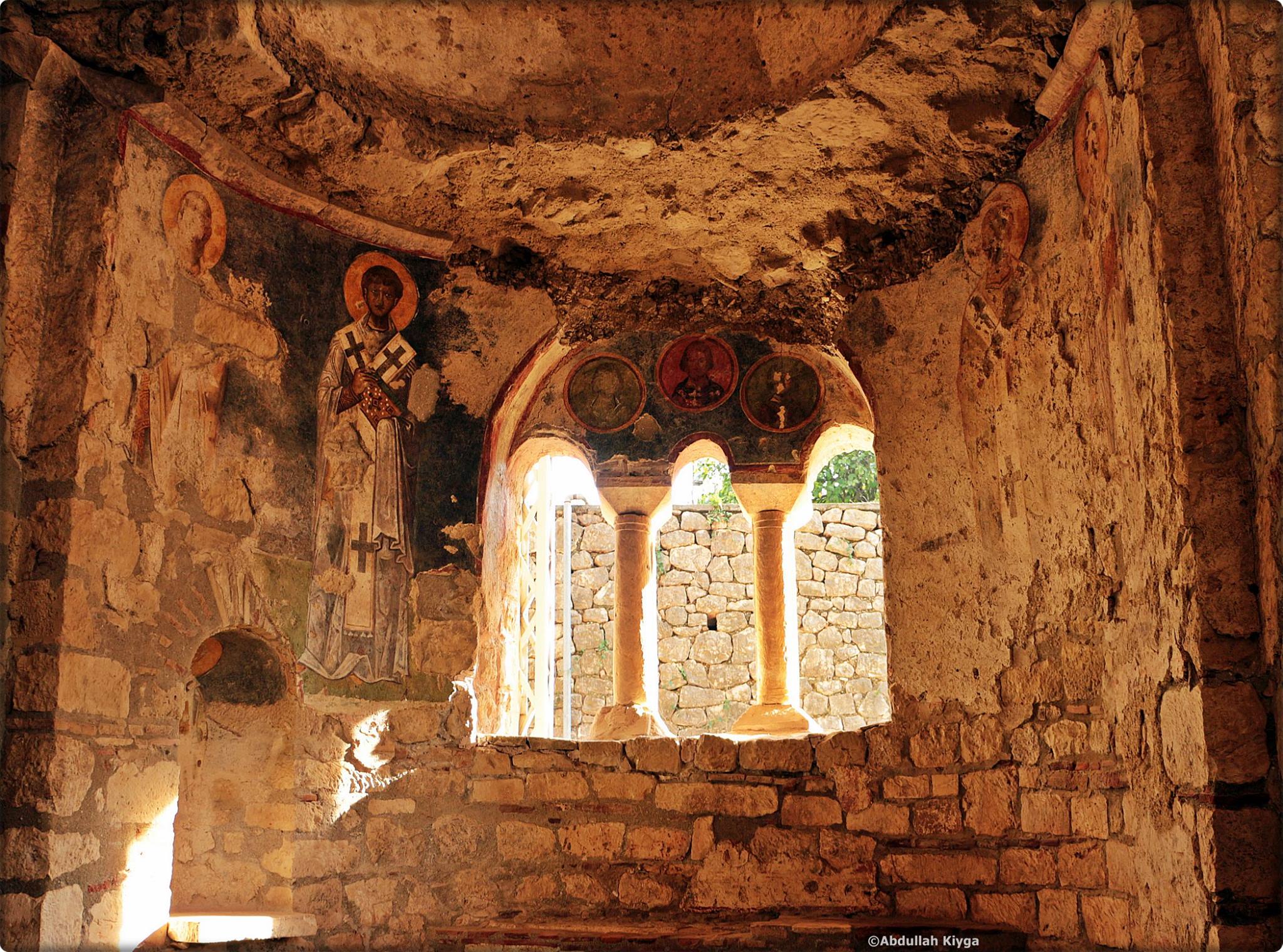Today is the 1,676th (or possibly 1,675th, depending on your source) anniversary of the death of Saint Nicholas–better known on page xiii of the Lutheran Service Book as the commemoration of Nicholas of Myra, Pastor. Much of what we know about the original Santa Claus has to be attributed to legend, as research can only confirm that there was a bishop by the name of Nicholas in the city of Myra in Lycia (now a part of Turkey) and that there was a church of Saint Nicholas in Constantinople in the 6th century.
He is known in the Church for several things: his generosity (tradition says that his wealthy parents died young and that he spent his inheritance on the poor and needy; many stories have grown up around his charity, such as one in which he secretly threw bags of gold through the open windows of the house of a poor man who need it for his daughters’ dowries, the bags landing on the stockings and shoes drying in front of the fire), as a protector of children, and a rescuer of sailors.
We also associate him with the Council of Nicea, from which came the Nicene Creed, an answer to the early church heresy of Arianism that taught that Jesus was more than man but less than God (thus the creed’s very pointed and detailed language: “begotten, not made, being of one substance with the Father”). Legend has it that he struck either an Arian heretic or Arius himself at this council, though the fact that this story didn’t arise until the 14th century, nearly a thousand years later, and that Nicholas’ name doesn’t even show up in the historical lists of attendees makes the story likely just that: a story.
Regardless of the veracity of these and other tales, we remember Nicholas of Myra as an example of Christian generosity, praying that we may also give out of an abundance of joy and according to the grace given to us (2 Corinthians 8:2; Romans 12:6-8). And perhaps, even, taking the rest as an entertaining reminder that we are called to speak the truth in love and in gentleness, no matter how tempted we are to strike another’s cheek, thanking God that when we fail we too receive a gift that we haven’t earned: His beloved Son, in whom we have the forgiveness of sins.

